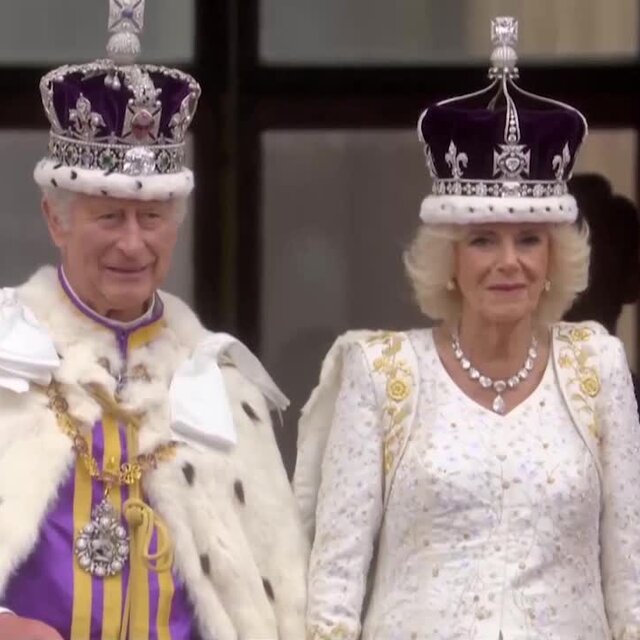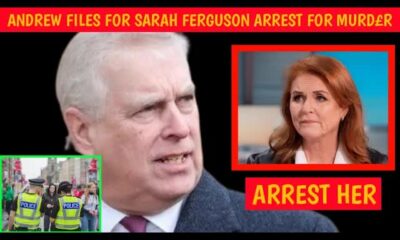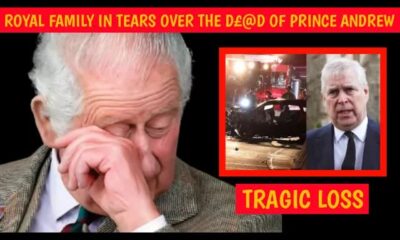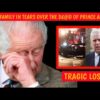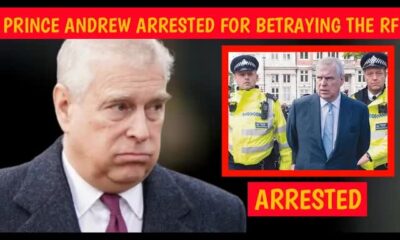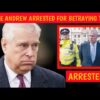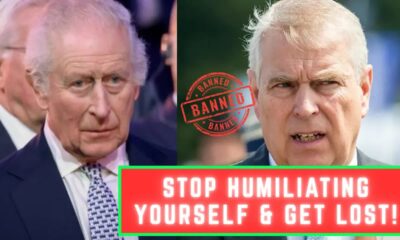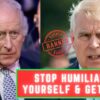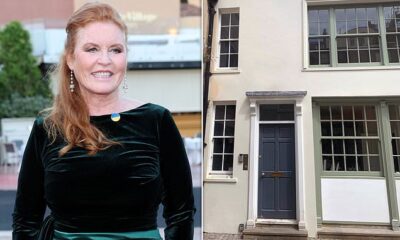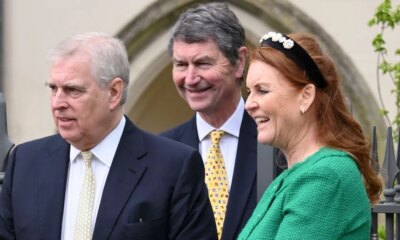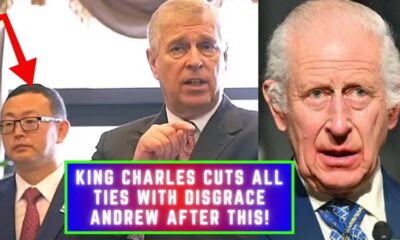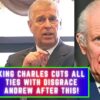Must Read
### Royal Reckoning: Prince Andrew’s Arrest Shakes the Monarchy
The world watched in disbelief as Prince Andrew, once a prominent figure in royal circles, was arrested and taken into custody, forever altering perceptions of the British monarchy.
Imagine the scene: the grand gates of Buckingham Palace, usually a symbol of prestige and power, now overshadowed by the image of a man in handcuffs.
Yes, it's true—Prince Andrew, the Duke of York, has been detained, and the implications of this event are sending shockwaves through the very fabric of royal tradition.
To fully grasp the significance of this arrest, it's essential to revisit Andrew's past.
He was born as the second son of Queen Elizabeth II and initially embraced a life filled with military service, royal duties, and a reputation for being the “fun-loving” royal.
However, beneath that charismatic exterior lurked a series of controversies that would eventually lead to his downfall.
The whispers began long ago, particularly surrounding his connections with notorious figures like Jeffrey Epstein, casting a shadow over his royal status.
The tipping point came with a fateful BBC interview in 2019, where Andrew's clumsy attempts to deny any wrongdoing only fueled public skepticism.
This awkward moment marked the beginning of a significant shift in public opinion against him, prompting the royal family to distance themselves from his increasingly troubled image.
Yet, even amid these growing concerns, few could have predicted the dramatic arrest that would follow.
What led to this shocking turn of events?
The allegations against Prince Andrew extend beyond mere associations; they encompass accusations of betrayal—both to individuals and to the crown itself.
Investigative documents suggested he may have misused his royal influence to protect dubious dealings, transforming him from a mere embarrassment into a potential liability for the monarchy.
The day of his arrest was anything but subdued.
British authorities apprehended Andrew at Windsor Castle, an event that drew crowds, flashing cameras, and a frenzy on social media.
The sight of a royal in handcuffs was unprecedented, leaving many to wonder whether true accountability could be achieved, or if wealth and privilege would once again shield him from justice.
Public reaction has been polarized.
Some view this as a long-overdue act of justice, a clear message that no one is above the law, not even those adorned with crowns.
Others lament this incident as a tragic blemish on Britain's storied heritage.
The monarchy, already reeling from past scandals, now faces a profound crisis—how can it regain public trust after such a deep betrayal?
Behind the scenes, Queen Elizabeth II remains a stoic figure, but sources suggest that she is heartbroken by the disgrace her son has brought upon the family.
The weight of losing a child under such circumstances is unimaginable, yet her commitment to the preservation of the crown remains paramount.
Is this the end of an era for the monarchy, or could it emerge stronger from this turmoil?
The saga of Prince Andrew serves as a cautionary tale about the fragility of privilege.
His fall from grace is a stark reminder that wealth does not equate to immunity from consequences.
Moreover, this case highlights the immense power of public scrutiny.
For years, Andrew appeared untouchable, but relentless media coverage and public outcry have finally pushed for accountability.
Looking ahead, Andrew faces a lengthy legal battle that promises to be fraught with drama.
Legal experts predict that the courtroom will be the stage for a protracted fight, capturing the attention of the world.
Meanwhile, the royal family must navigate their response carefully—will they continue to support Andrew, or will they choose to distance themselves further to preserve the institution's integrity?
As society watches this royal reckoning unfold, questions about the future of the monarchy loom large.
Will they embrace transparency and reform, or cling to outdated traditions?
This scandal offers a unique opportunity for the Windsors to adapt, potentially reshaping how they engage with the public and redefine their priorities in a modern context.
The ramifications of Prince Andrew's arrest extend far beyond the palace walls.
It challenges societal norms regarding power and privilege, forcing a reevaluation of who gets held accountable.
As discussions about justice and fairness gain momentum, people are left wondering—who else may be evading scrutiny behind the veil of influence?
In the coming months, the story of Prince Andrew will continue to dominate headlines.
To stay informed, it's crucial to rely on credible news sources and engage in thoughtful discussions.
This isn't merely a royal scandal; it's a case study that reflects the broader dynamics of power and accountability in society.
Ultimately, Prince Andrew's arrest is a pivotal moment for the British monarchy and a broader call to action for accountability across all levels of power.
It compels us to reflect on the systems we uphold and the values we cherish.
Change begins with us, and as we look toward the future, the question remains—will this event inspire lasting reforms, or will it fade into history as just another royal scandal?
The stage is set, and the world is watching.
